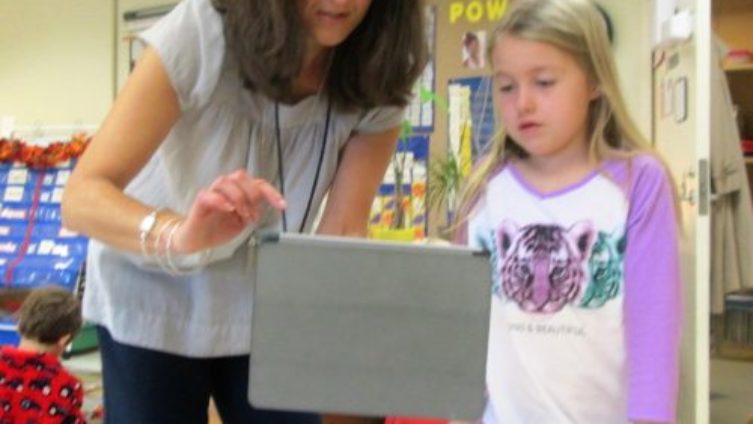
Technology soared at TCS this last school year with the launch of a new Digital Literacy program and major technology upgrades in the classrooms. Two new team members helped make it an especially successful year in the technology department: Dale Ioannides moved from the second-grade classroom to become the digital literacy coach, and Alex Lesov joined TCS in July 2016 as a network and technology support specialist.
“Dale brings her teacher’s understanding of the classroom and uses it to help other teachers and students explore technology-infused projects and lessons,” said TCS Director of Innovation and Information Technology Tony Perez. “Her presence is essential to growing our use of technology tools at TCS. From robots to coding to algorithmic thinking to digital citizenship, Dale has been at the center of our re-defined Digital Literacy program.”
Alex brings many years of both data center-level customer and network support to TCS. He’s helped TCS improve the reliability and speed of our network systems and has become our go-to expert on all things coding. Working with Dale, he has introduced
students to binary code; explored operating systems; led computer teardown and re-builds; and helped TCS focus the coding program. Somehow, he even found time to coach TCS soccer, too!
“While it is possible to find network folks who can plan, upgrade and maintain networks, it is not quite so easy to find someone with this level of tech skill who also has a passion for teaching in an elementary-school environment,” said Tony.
This past school year also saw the launch of the re-defined Digital Literacy program, which is at the center of our classroom technology initiatives.
“In order to better serve the classroom and teach the skills our students need to succeed in our project-based learning initiative, Dale’s Digital Literacy classroom was transformed into ‘The Studio,’ a place of student making, coding and computer exploration,” said Tony.
Students took apart and then re-built computers; were introduced to coding and simple robot programming in kindergarten through second grades; learned binary code to support design-based projects in fourth through sixth grades; made use of 3-D printers in the classroom; studied movie-making and green screens; and learned about operating systems, networking and the Internet.
“Digital Literacy should be viewed as another resource for content delivery and student production. Students should not just be consumers of digital media, but producers,” said Dale.
“Twenty-first-century skills include not just technology, but collaboration, empathy and critical thinking. Students need these skills to thrive in the workplace of the future.”
TCS also began upgrading classroom technology in 2016-17. The interactive whiteboards in classrooms were replaced with newer Interactive Flat Panels (think 65” iPad!). Wireless network capability was increased, along with a liberal application of whiteboard paint. The MacBook Air was added to our tech-tool list with 18 laptops available in classrooms to support more advanced design-based projects.
An improved infrastructure has also benefited everyone at TCS — from staff to students to TCS families.
“Each day, more than 500 devices connect to and use our network, and we use over 150GB of data. We have become a fairly sophisticated, data-reliant operation, and our network infrastructure must be up to the challenge,” explained Tony.
Our students know that technology is not bound by classroom walls. TCS used PowerSchool Learning’s web-based learning platform (formerly called Haiku) to establish TCS as a “school without walls” where class-
room content, discussions and projects are no longer limited to a specific place or time.
By the end of their careers at TCS, graduates will be able to express themselves in digital media; understand how to create using digital tools; know “how things work;” and be able to solve real-world problems using project-based learning skills taught in the classroom.
Through our donors’ ongoing support, TCS has the ability to stay on the forefront of technology advances and lead our children into the future prepared for success.









